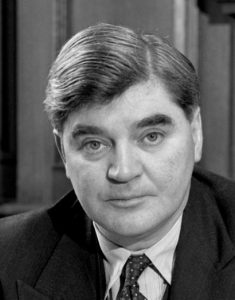Whenever reform of the NHS is discussed the possibility that payments to visit your GP or attend A&E is nearly always put forward as a method to reduce unnecessary visits and to raise extra funds.
Most recently in January 2023, the former health secretary Sajid Javid, suggested that means-tested fees be introduced. He referred approvingly to the £20 fee that some European countries charge for visits to the GP, and to the Republic of Ireland’s €75 (£66) bill for attending an A&E as “nominal”.
These flat rate charges or co-payments are common in other countries, and the NHS has a very limited number of these, such as for prescriptions and dental charges. However, the principle that NHS care is free at the point of use is popular with the public, and so any extension in charging would challenge this core idea and is likely to be controversial.
Impact on the use of services?
Arguments have been put forward that as the NHS is free, people are less careful with their use of services, more inclined to book a GP appointment rather than try other services first. Although there will be people who visit GPs unnecessarily, research comparing healthcare use across a number of comparably wealthy countries, has shown that people in the UK generally use less healthcare.
In fact, the UK has a problem of people not visiting a GP when they should, which would be exacerbated by charges. Research has found that worry about wasting the doctor’s time contributes to delays in cancer diagnosis in the UK, which in turn contributes to poor cancer survival rates compared with other countries.
There is a large body of evidence that charges may deter patients from attending services. Sajid Javid used the example of GP charges in Ireland to support his argument for these payments, but a study has highlighted several negative effects of the scheme, despite it being means tested. The research found that one in four of adult patients who have to pay for GP consultations had a health problem during a 12 month period but did not see their GP because of cost. Also,
following implementation of primary care user fees in Ireland, people on low and middle income were five times more likely to forgo a primary care appointment than wealthier patients.
The famous RAND health insurance experiment carried out in the 1980s, found that charges that are not based on ability to pay have a detrimental impact on the people who need care the most, the poor and older people.
Delays in visiting GPs mean that minor problems develop into much more serious problems and then necessitate more expensive interventions. Serious problems lead to a reduction in quality of life and ability to work, and eventually lead to premature death.
Patients will be reluctant to attend appointments for chronic disease management and may well question if such appointments are necessary. As a result, preventive and chronic disease management are both likely to decline, with patients visiting their GP only when a crisis occurs.
Wealthier patients, when asked to pay for NHS GP appointments, may opt for private primary care, further increasing health inequalities and leading to the fragmentation of care. Consequent expansion in private primary care services may also increase shortages of NHS GPs, exacerbating workload problems.
How much money could be raised?
Charging does raise revenue, but covers only a fraction of the cost of the service. For Prescriptions the charges collected cover just 5% of the total cost of prescriptions. After exemptions for younger and older people, those on low incomes, those with certain health conditions, are taken into account, 89% of prescriptions are dispensed for free.
To introduce patient fees for GP and emergency care would require every GP practice and A&E department to bring in a system to work out who should pay and to collect payments. No such system exists at present, the NHS would have to fund this system’s implementation and its ongoing maintenance.
Any new system for charging would mean more administration for NHS staff and paperwork for patients, and is one reason why the NHS currently spends less on administration than other countries.

As a money-making plan, charging for GP appointments and A&E visits is unlikely to raise sufficient revenue to make it worthwhile. Funding services though general taxation provides a more efficient and equitable basis for raising revenue and shares the burden of ill health across society, avoiding the negatives consequences of charging.
Charges are also no guarantee of access. NHS dental services cover 30% of the cost – and yet many people cannot find NHS dental treatment.
Effect on staff
The impact of the introduction of charges will be substantial on NHS staff and entirely negative.
Patients who pay to see a GP may expect ‘a return’, such as a prescription or referral, putting pressure on their GP. Patients may not consider it money well spent if they receive nothing but a check-up. The current situation of regular check-ups for patients to monitor a condition, would be put in jeopardy – with some patients not considering the visits money well spent, or simply not be able to afford them.
The increase in forms, which are likely to be only available online, will be a daunting prospect for many older or poorer patients without easy access to online systems. Help will be needed and it is likely that GP receptionists and other administrative staff will have to add helping people fill in forms for exemption to their list of tasks.
Added to this is the problem of who asks for payment at the GP and A&E? Will GP receptionists have to deal with patients who say they can’t pay but have no means of proving an exemption? Do they allow patients who very clearly need to see a GP attend an appointment even though they know that collecting payment will be difficult if not impossible? So many difficult situations will arise for staff.
A particular problem for A&E, is what happens if a patient needs care but cannot prove they are exempt and is not able to pay upfront? Does the patient get treated and payment deferred? Then who checks the patient’s story and if they are not exempt then attempt to get payment after the event? Is further treatment, even if necessary, withheld until the debt is settled? Does A&E contact the patient’s GP and is the GP then expected to withhold further treatment until the debt is paid off?
This poses so many ethical problems for NHS staff, who are there to treat patients not to question the financial and personal circumstances of people nor to act as bailiffs. Will the NHS then have to employ people specifically to chase medical debt?
Historical perspective: 
In 1951, Hugh Gaitskell, then Minister of Treasury, introduced charges for prescriptions, spectacles, and dentures in the NHS. Aneurin Bevan, Minister for Labour and architect of the NHS, resigned in protest at this abandonment of the principle of care free at the point of need.
Key reports research:
https://gh.bmj.com/content/3/Suppl_3/e001087 – review of research found reduced user charges were associated with improved health outcomes
Dermot O’Reilly, Tom O’Dowd, Karen J. Galway, Andrew W. Murphy, Ciaran O’Neill, Ethna Shryane, Keith Steele, Gerry Bury, Andrew Gilliland & Alan Kelly (2007) Consultation charges in Ireland deter a large proportion of patients from seeing the GP: Results of a cross-sectional survey, European Journal of General Practice, 13:4, 231-236, DOI: 10.1080/13814780701815082
Kings Fund, Consultation response: co-payments and charges in the NHS https://www.kingsfund.org.uk/sites/default/files/field/field_publication_file/Consultation-response-co-payments-charges-dec-2005.pdf
Aron-Dine, A., Einav, L., & Finkelstein, A. (2013). The RAND Health Insurance Experiment, three decades later. The journal of economic perspectives : a journal of the American Economic Association, 27(1), 197–222. https://doi.org/10.1257/jep.27.1.197
Greenfield, G., Majeed, B., Hayhoe, B., Rawaf, S., & Majeed, A. (2019). Rethinking primary care user fees: is charging a fee for appointments a solution to NHS underfunding?. The British journal of general practice : the journal of the Royal College of General Practitioners, 69(683), 280–281. https://doi.org/10.3399/bjgp19X703793
Dear Reader,
If you like our content please support our campaigning journalism to protect health care for all.
Our goal is to inform people, hold our politicians to account and help to build change through evidence based ideas.
Everyone should have access to comprehensive healthcare, but our NHS needs support. You can help us to continue to counter bad policy, battle neglect of the NHS and correct dangerous mis-infomation.
Supporters of the NHS are crucial in sustaining our health service and with your help we will be able to engage more people in securing its future.
Please donate to help support our campaigning NHS research and journalism.



